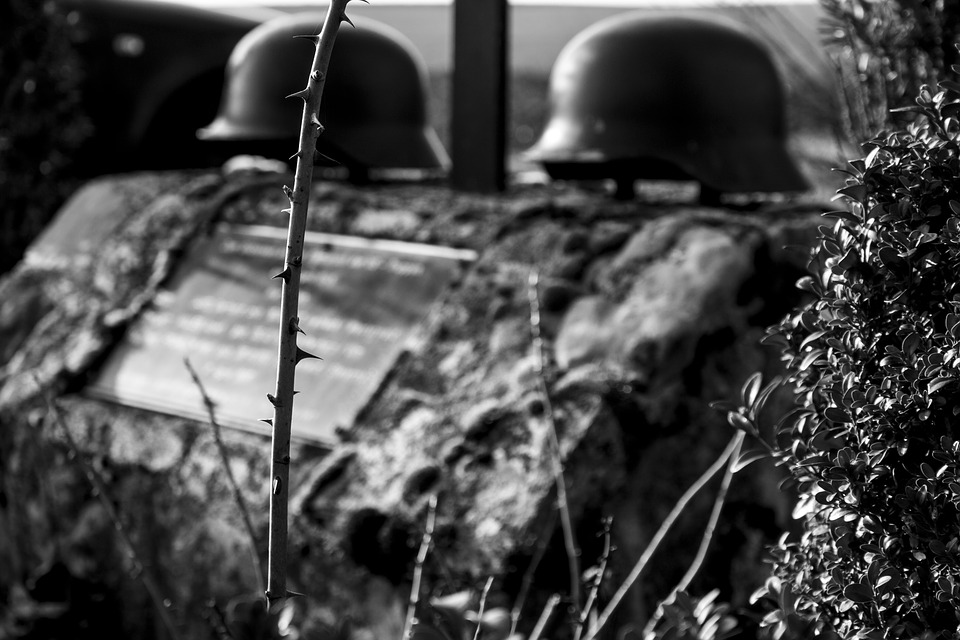
WRF Board Chairman Rick Perrin Reflects on "The Spoiled Fruits of War"
Something happened in the winter of 1944-1945 that changed the soul of America. The war in Europe was grinding on. By the Fall everyone in the United States who could be drafted had been called up. The British literally had no new men left to fill their ranks. The Germans staffed their divisions at half strength with old men and young boys. Everyone else was wounded or dead.
And still the Germans fought. Europe’s towns lay in rocky heaps. German cities no longer existed. Yet the armies continued to slaughter one another with demon-driven fury. The Hurtgen Forest. The Bulge. The Colmar Gap. To add to the misery, 1944-45 was the coldest winter in decades. Men used blowtorches so they might pull their triggers. But the barrels of their artillery tubes glowed red and melted.
Then something snapped among the American and British troops. In his excellent history of the war in Europe, The Guns at Last Light, (New York, 2013) Rick Atkinson tells something you’ve not heard before. “A survey of four thousand GIs found that although four-fifths expressed strong hatred toward German leaders, less than half voiced hatred toward German soldiers. But by late winter enough haters and killers filled the ranks to constitute a ferocious killing engine.”
An officer in the 35th Division wrote, “A hatred such as I have never seen has sprung up among us against Hitler’s armies and all of Germany.” A British soldier said, “The question of killing does not present itself as a moral problem any more—or as a problem at all.” German soldiers were shot with their hands raised in surrender.
A Red Cross volunteer wrote in her diary, “How hard I have become…. Emotions which formerly would have wracked my soul leave me almost untouched.” (526). Then in Spring the US armies liberated the concentration camps, and the sheer mounds of abandoned evil ate away what remained of human feeling.
Hell’s legacy did not end with the German surrender on May 8. Every person in America had been touched by the war. The millions who had drunk of the bloodletting came home. They had seen horrible things. They had done deeds they could never forget. And they reunited with those who had waited, twisted by their own psychic suffering.
Now all they wanted was to return to normal. To get married, to have children, to live in peace, to make sure their children would never experience what they had. And so they stuffed it all down and didn’t talk of it. But these people were the walking dead, scarred in heart and soul. To their kids they appeared distant and uncaring. And those kids had no way to know what their parents hid behind the cracked facades, in the bombed out recesses. The demons they had chained inside.
Consequently, when the children came of age in the ‘60s and ‘70s, they rebelled. They lashed out at what they believed to be the insensitivity of their parents. They mistook their parents’ attempt to love for an obsession with comfort and materialism. And they smashed the world their moms and dads built--with bombs constructed of spite and trashed values.
It didn’t help that the one factor that might have healed the greatest generation and softened the rebelliousness of their offspring had been defused. In their rush to get back to normal, the weary veterans of war, together with their wives, flocked to the churches. But the churches—since they were made up of these same broken people--were able only to be the sponsors of “normalcy.”
During the 1950s and 1960s there were few, if any, conversions in America. The gospel was not much preached from the pulpits. And the promise of “a balm in Gilead” was rarely offered. Jeremiah wrote, “’Harvest is past, summer is ended, and we are not saved.’ For the brokenness of the daughter of my people I am broken; I mourn, dismay has taken hold of me. Is there no balm in Gilead? Is there no physician there? Why then has not the health of the daughter of my people been restored?” (Jeremiah 8:20-22)
Taps.
Please God, may the children and the grandchildren hear the bright call of reveille.
